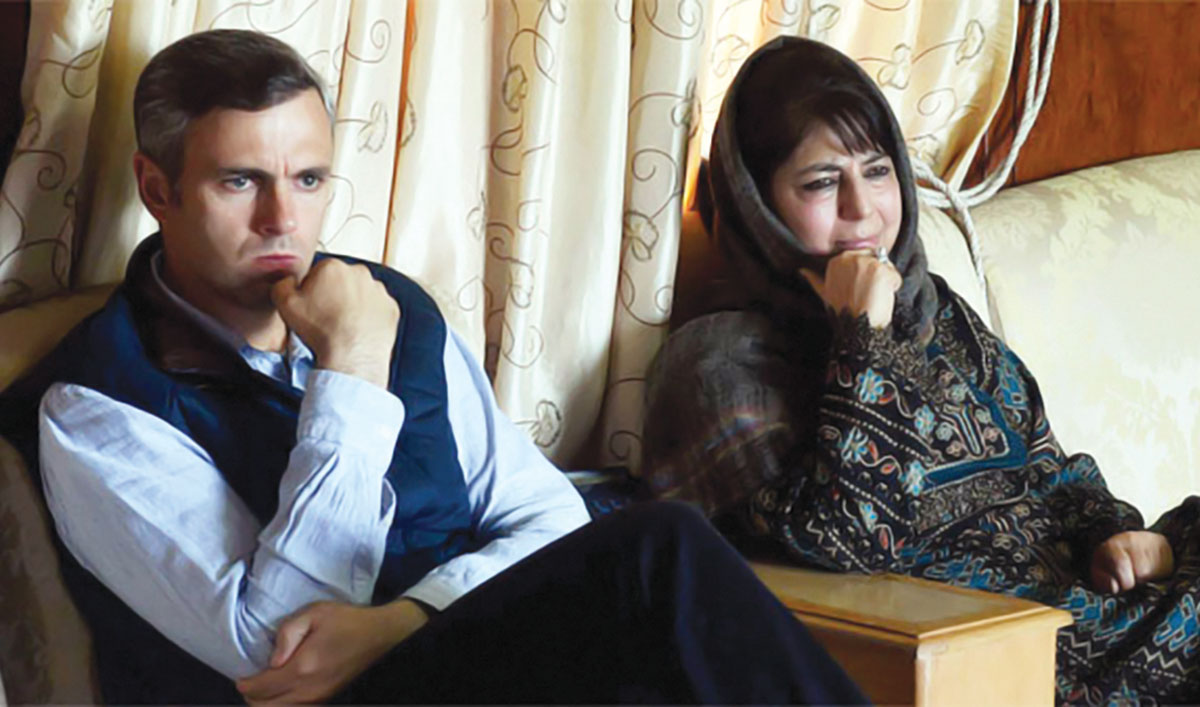by Muhammad Nadeem
“A person who longs to leave the place where he lives is an unhappy person.”
Milan Kundera

Literature possesses a remarkable power to transport readers to different worlds, immersing them in diverse cultures and experiences. Milan Kundera, a renowned Czech-French author, passed away on July 12, 2023, at the age of 94, leaving behind a legacy of captivating readers with his profound insights into the human condition.
I first discovered Milan Kundera’s works as a student at the University of Kashmir. His writing immediately captivated me with its playful yet profound nature. His novels explore the fundamental questions of life, such as the nature of love, freedom, and identity.
One aspect that particularly struck me about Kundera’s writing was his masterful use of language. He was a true virtuoso of the Czech language, employing it to create intricate and beautiful imagery. Additionally, he skillfully employed language to delve into the limits of our comprehension.
Having been born and raised in Kashmir, a region plagued by long-standing conflict, I found that Kundera’s works resonated with my own experiences. Kundera weaves intricate narratives that explore the complexities of human existence, relationships, and historical contexts.
Kundera’s experiences in Czechoslovakia under communism and the struggles faced by Kashmiris under successive regimes share striking similarities. Both Kundera and Kashmiris have lived under regimes that sought to control every aspect of their lives, from thoughts to actions.
In Kundera’s novel The Unbearable Lightness of Being, the protagonist is compelled to live a lie under the communist regime, unable to freely express his thoughts or feelings.
During the communist regime in Czechoslovakia, the government exerted strict control over its citizens, stifling freedom of expression, suppressing dissent, and enforcing a conformist ideology. Consequently, people felt disillusioned and deprived of meaning, forced to conform to an ideology they did not believe in.
While the historical and cultural contexts differ, both Czechoslovakia during communism and contemporary Kashmir experience a similar burden and meaninglessness imposed by the regimes.
The Unbearable Lightness of Being didn’t make it bearable but atleast one didn’t remain Ignorant that Life is Elsewhere; more about Laughter and Forgetting than about an Encounter with Immortality. It is a Festival of Insignificance.
RIP, Milan Kundera!https://t.co/UFLa6Hgmoa— Haseeb Drabu (@HaseebDrabu) July 13, 2023
Reading Kundera’s work provided me with a fresh perspective on my own experiences in Kashmir. His novels delved into themes of memory, identity, and the limits of comprehension.
In The Unbearable Lightness of Being, Kundera explores the concept of the “eternal return,” suggesting that we are trapped in a cycle of repeating the same mistakes and reliving acts of violence. This idea resonated with me, as I had witnessed the endless cycles of violence in Kashmir.
Another recurring theme in Kundera’s works is the exploration of identity and the pursuit of freedom. Kashmir, too, has been embroiled in a situation marked by a complex history. Kundera’s characters grapple with the weight of their choices and the consequences of their actions, mirroring the intricate dynamics of Kashmir.
Kundera’s works often delve into themes of disgust, disillusionment, and despair in the face of oppressive circumstances. His cynicism, combined with a touch of humour, strikes a chord with Kashmir. Novels like The Book of Laughter and Forgetting and The Joke portray characters profoundly disenchanted with their social and political environments. They confront the absurdity of life and the inherent contradictions within their societies, resulting in feelings of desolation.
In The Joke, Kundera discusses the power of language and the perils of humour in a totalitarian society. This novel explores the complex relationship between language, humour, and power, serving as a reminder of the importance of resistance and the dangers of control.
In The Book of Laughter and Forgetting, Kundera explores the notion of the “forgettable man,” emphasising how certain individuals are easily forgotten. This idea made me reflect on how those affected by the trouble in Kashmir are often forgotten by us.
Reading Kundera’s works allowed me to comprehend the situation in Kashmir from a new perspective. It helped me understand that political instability in any nation can encompass more than just land or resources; it is intertwined with issues of identity, memory, control, and power.
Kundera’s essays, particularly The Art of the Novel, offer profound insights. According to Kundera, the novel serves as a form of memory, enabling us to remember that which we have forgotten. Kundera argues that the novel is not merely a reflection of reality but a tool to shape it. He posits that the novel allows us to perceive the world through fresh eyes, with all its complexity and ambiguity.
Kundera’s writing is characterised by an embrace of ambiguity and paradox, challenging conventional notions of truth and meaning. In Kashmir, with its diverse religious and cultural tapestry, these paradoxes find fertile ground for exploration.

Kashmir, with its rich historical layers intertwined with the present, and Kundera’s novels, steeped in profound history and memory, prompt readers to contemplate how the past shapes the present. There is a profound connection between the political landscapes of Kashmir and the narratives within Kundera’s works, prompting reflection on the significance of memory in shaping personal and collective identities.
In the convergence of Kundera’s literary genius and the suffering of Kashmir, I was transported to a realm where imagination and reality intertwine. Reading Milan Kundera can be a transformative experience, enabling readers to gain a deeper understanding of the transformative power of literature.
For me, reading Milan Kundera is a testament to the enduring impact of literature and its ability to understand a shared human experience of suffering across time and place.
(The author is a reader and a trained journalist. Ideas are personal.)















